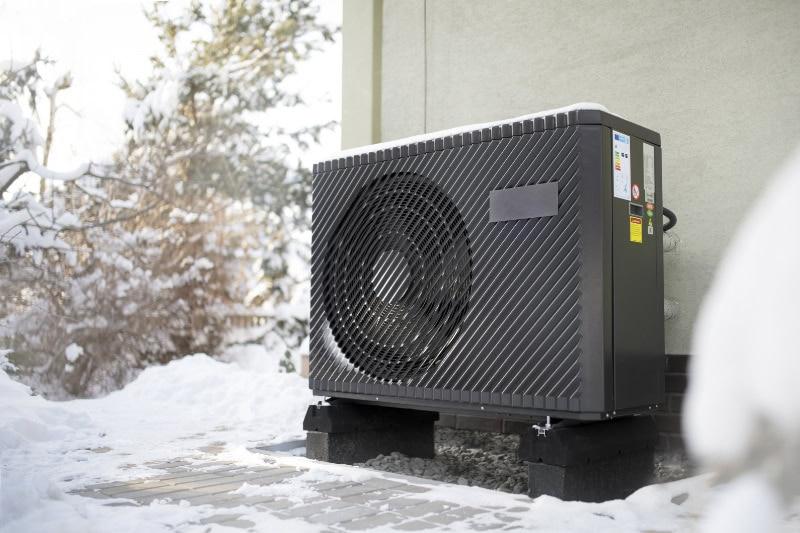When it comes to achieving optimal comfort in your home while maintaining energy efficiency, a heat pump is an excellent choice. Offering a dual function for both heating and cooling, heat pumps have become a popular solution for homeowners looking to reduce their energy consumption and environmental footprint. This article delves into the mechanics of heat pumps, their benefits, and what you need to know before considering them for your home.
What is a Heat Pump?
A heat pump is a versatile HVAC (heating, ventilation, and air conditioning) system that transfers heat rather than generating it. In winter, it extracts heat from the outside air and moves it indoors, providing warmth without the need for traditional combustion-based heating methods. Conversely, in the warmer months, the process is reversed, and the heat pump works as an air conditioner by transferring heat from the indoor air to the outside.
This energy-efficient system operates using a small amount of electricity to move heat from one place to another, rather than burning fuel to create heat, which results in significantly lower energy costs.
Types of Heat Pumps
There are several types of heat pumps to choose from, depending on your specific needs:
- Air-Source Heat Pumps:The most common type, these heat pumps extract heat from the outside air. Air-source heat pumps are ideal for moderate climates but can still work efficiently in colder temperatures when paired with a backup heating system.
- Ground-Source (Geothermal) Heat Pumps:These systems extract heat from the ground or groundwater, which maintains a more constant temperature year-round. While geothermal systems require higher installation costs due to the need for underground loops, they offer exceptional efficiency and long-term savings.
- Water-Source Heat Pumps:These systems use water from a nearby source such as a lake or river to transfer heat. They are less common but can be very efficient for homes located near a reliable water source.
Benefits of Installing a Heat Pump
There are numerous advantages to integrating a heat pump into your home’s heating and cooling system:
- Energy Efficiency:Heat pumps are highly efficient because they do not generate heat but transfer it. This means that for every unit of electricity consumed, a heat pump can provide several units of heating or cooling, significantly reducing energy bills.
- Environmental Impact:By consuming less energy than traditional heating methods, heat pumps contribute to reducing greenhouse gas emissions, making them a more environmentally friendly option.
- Dual Functionality:The ability of heat pumps to both heat and cool your home makes them a year-round solution, removing the need for separate systems like furnaces and air conditioners.
- Long Lifespan:With proper maintenance, heat pumps can last for up to 15 years or more. Their durability makes them a reliable investment for homeowners looking for long-term comfort and savings.
Key Considerations Before Installing a Heat Pump
Before making the switch to a heat pump, it’s essential to consider a few factors:
- Climate:While heat pumps work efficiently in mild to moderate climates, their performance may be affected in extremely cold weather. In colder regions, a heat pump may need to be supplemented with an auxiliary heating source or paired with a more robust system like a furnace.
- Installation Costs:The initial cost of installing a heat pump, especially a geothermal system, can be higher compared to traditional HVAC systems. However, this upfront investment is often offset by lower operating costs and energy savings in the long run.
- Maintenance Requirements:Like any HVAC system, heat pumps require regular maintenance to ensure they operate efficiently. This includes routine checks on the compressor, refrigerant levels, and filters to maintain peak performance.
How Heat Pumps Work in Various Seasons
In winter, the heat pump works by extracting heat from the cool outdoor air, even when temperatures are low, and transferring it inside. In summer, the system reverses the process and works as an air conditioner, drawing the heat out of your home and releasing it outside. The ability to reverse this process allows heat pumps to offer consistent comfort all year long.
Conclusion
A heat pump is a reliable, energy-efficient solution for maintaining comfortable temperatures in your home throughout the year. By understanding how a heat pump operates and weighing the benefits against the considerations, homeowners can make informed decisions about whether this system is the right choice for their needs. With the right installation and maintenance, a heat pump can significantly reduce energy costs while contributing to a more sustainable and comfortable living environment.

